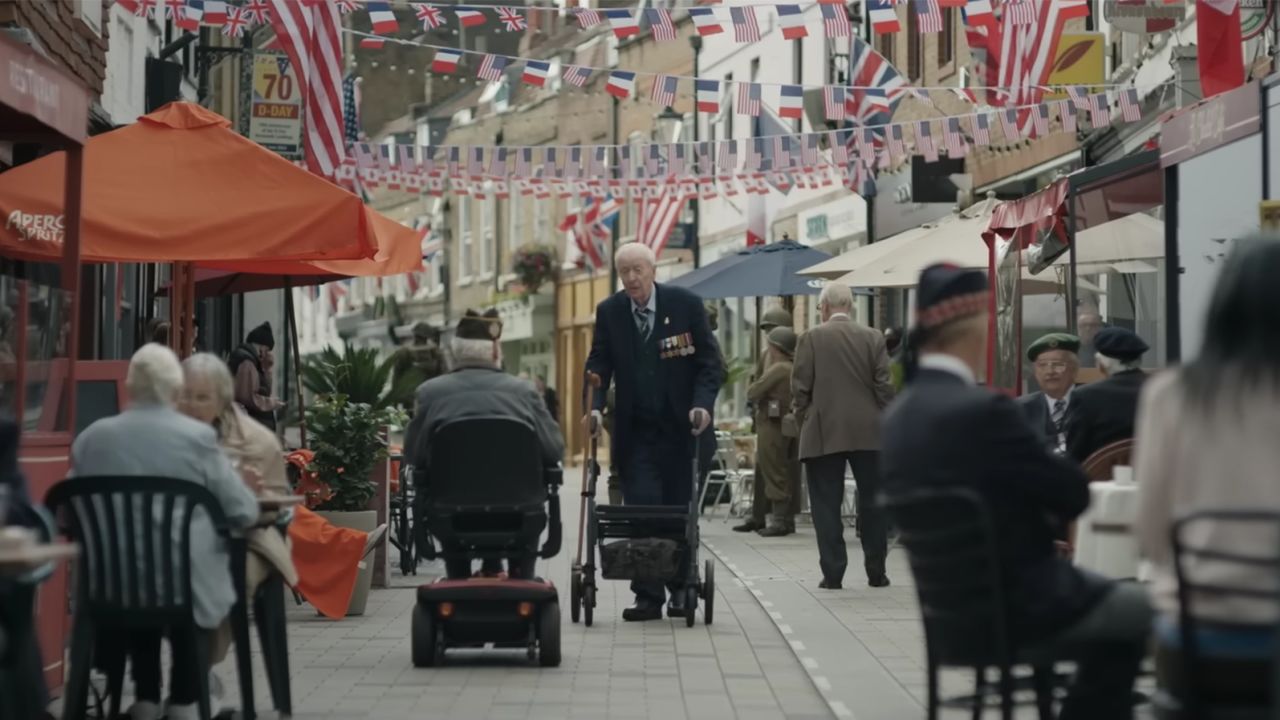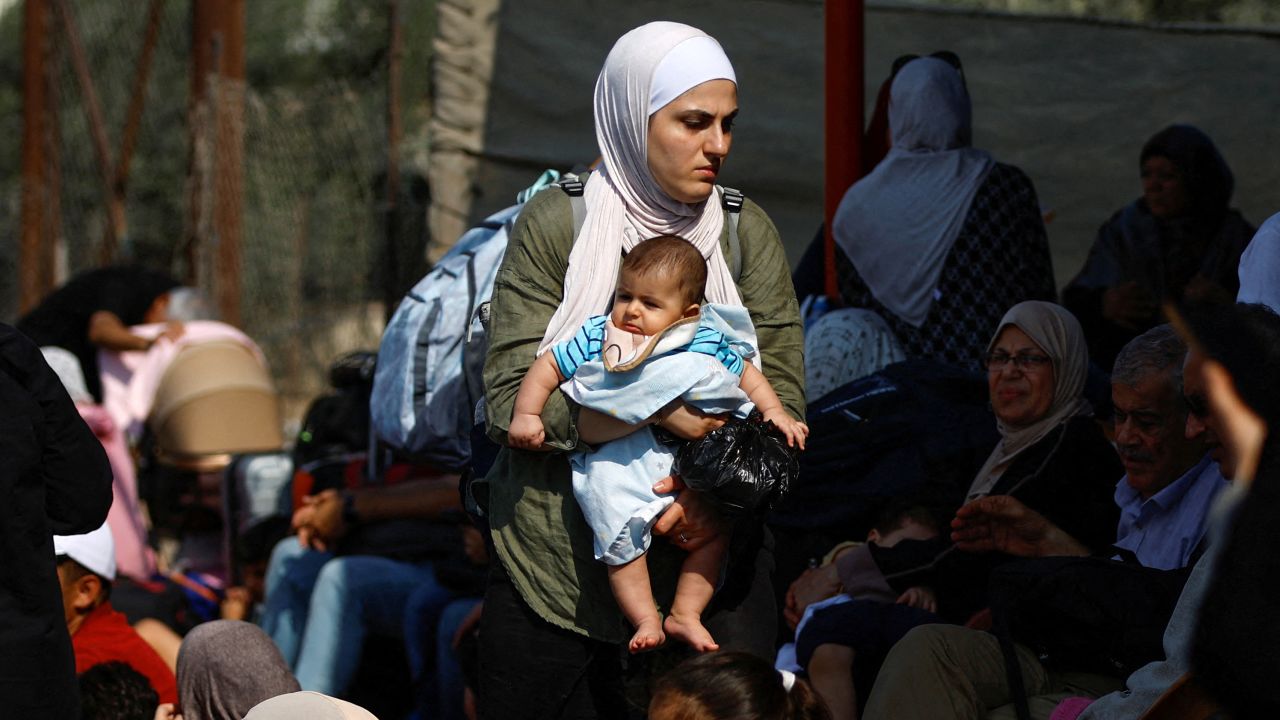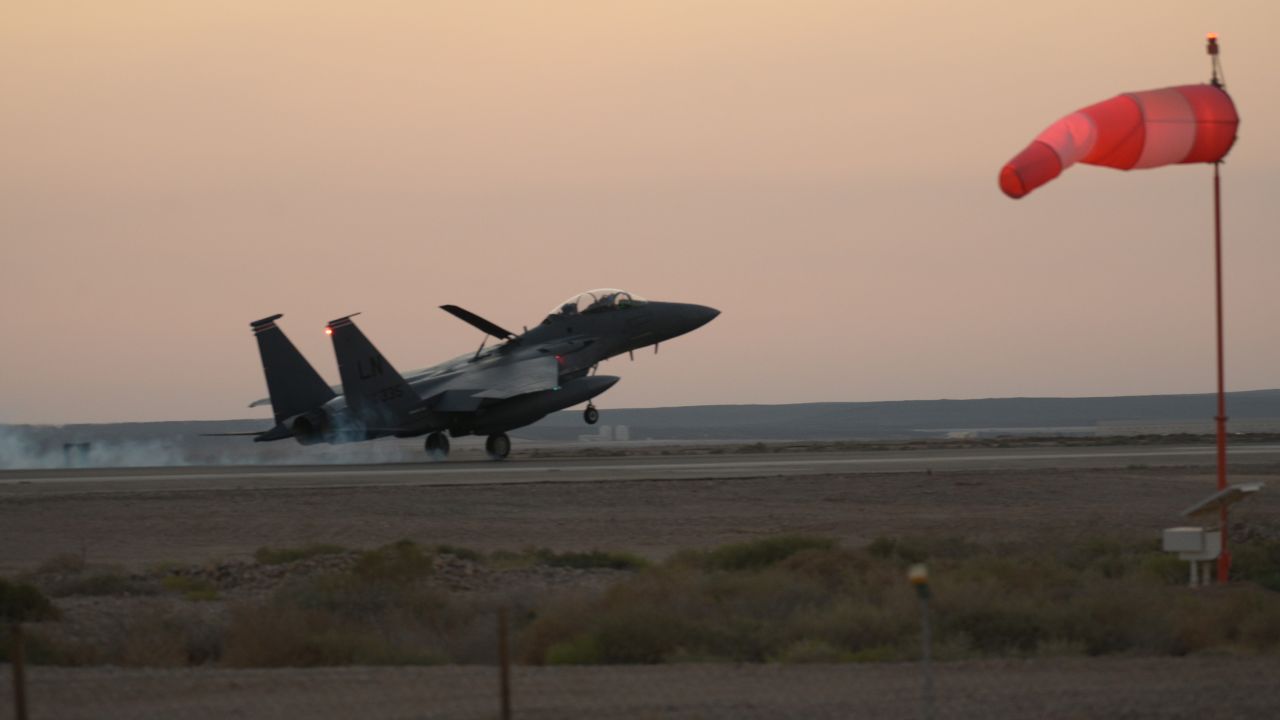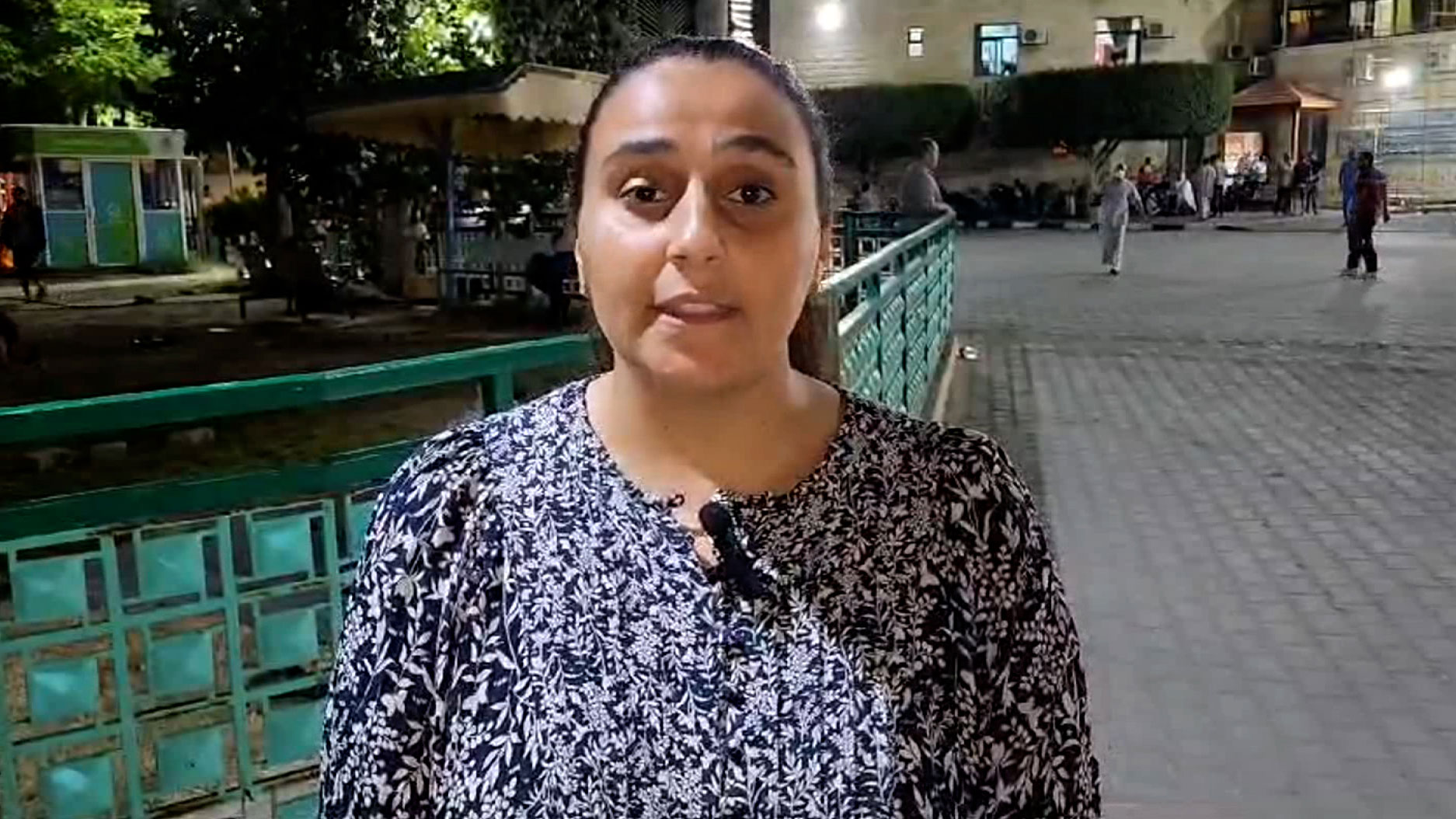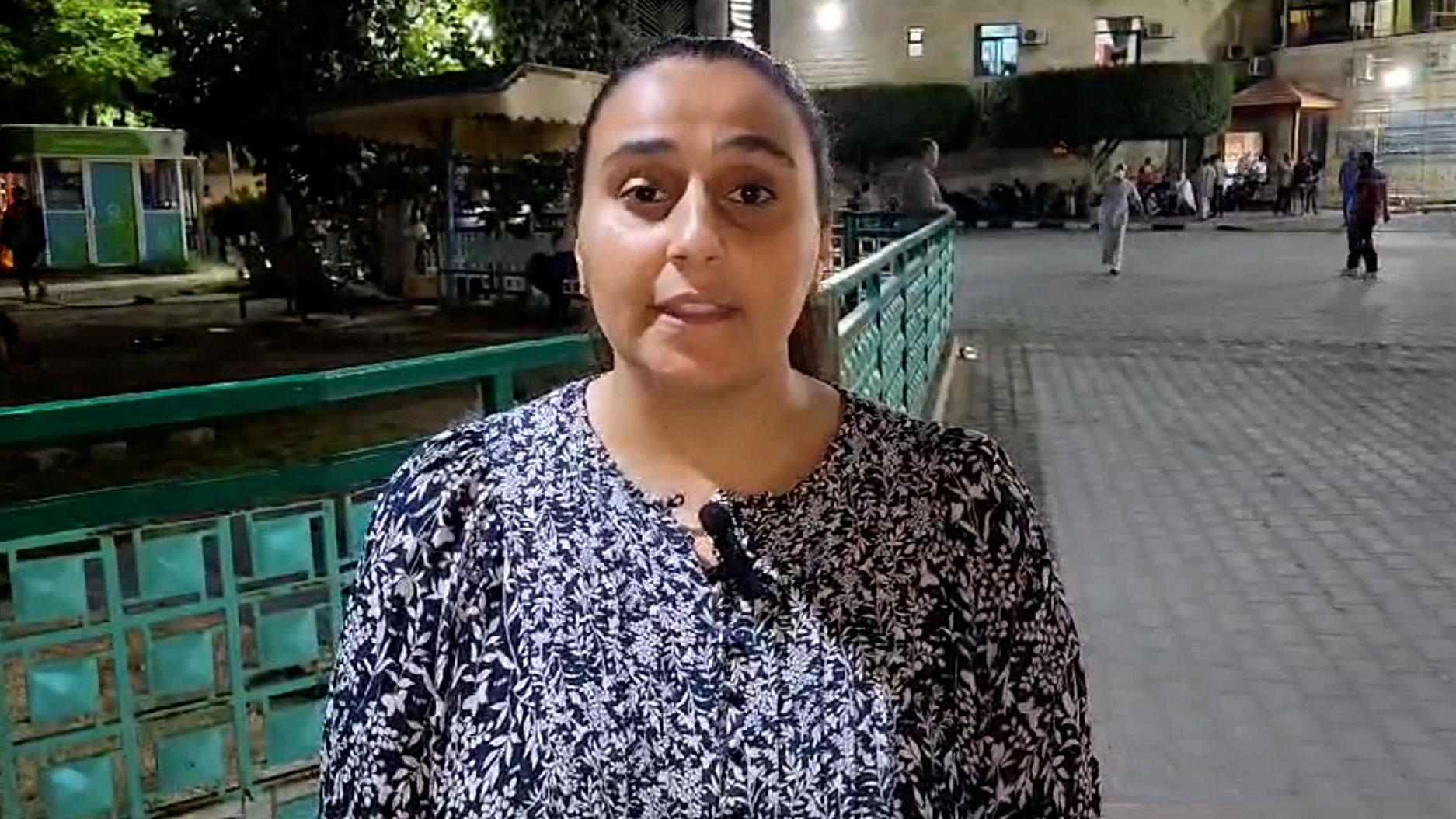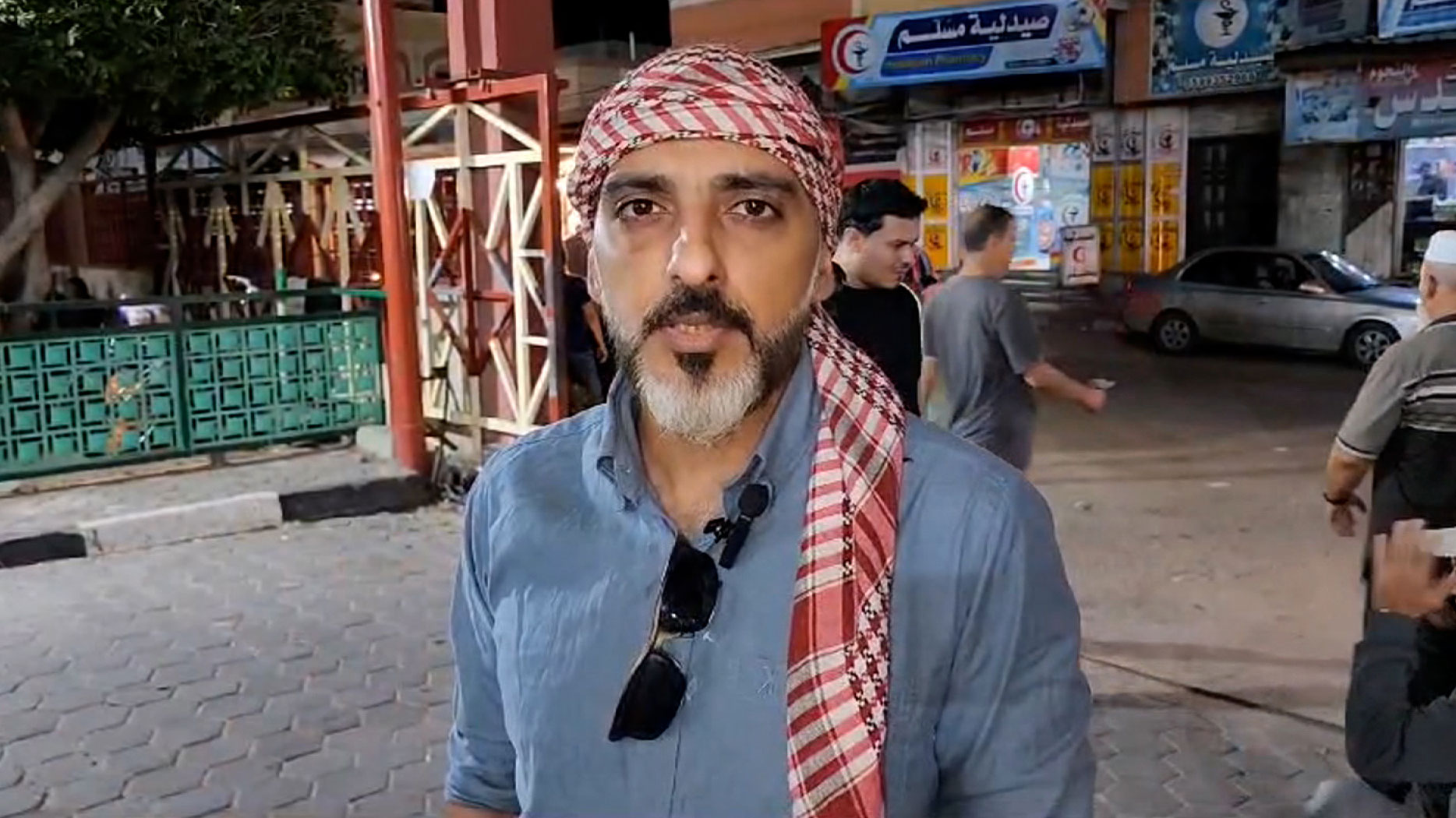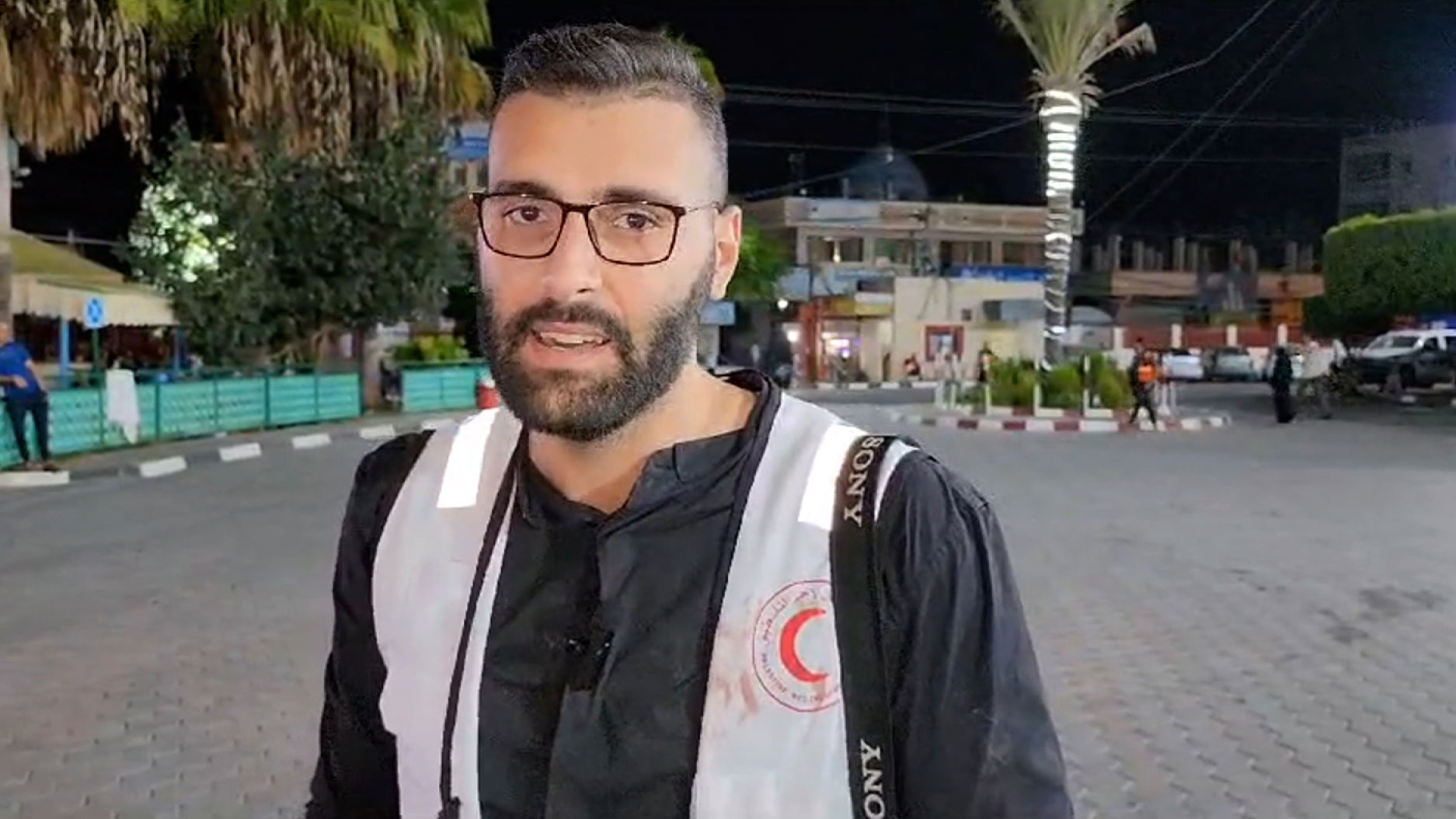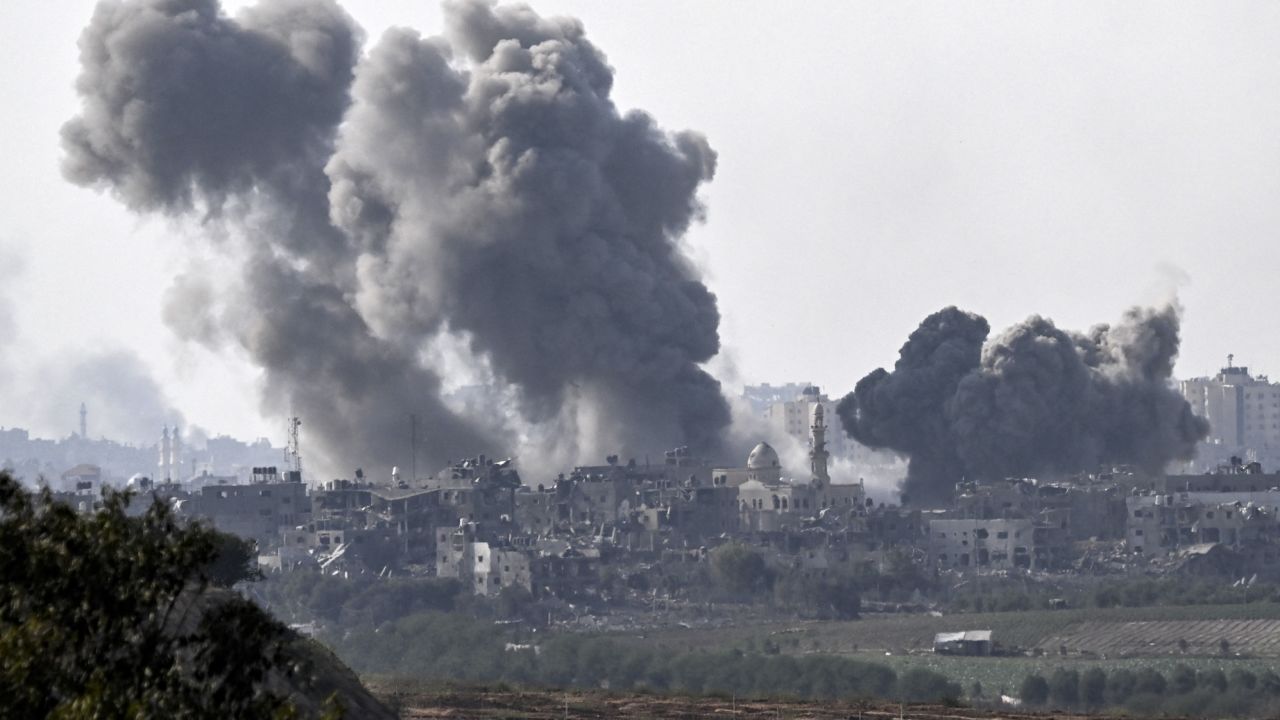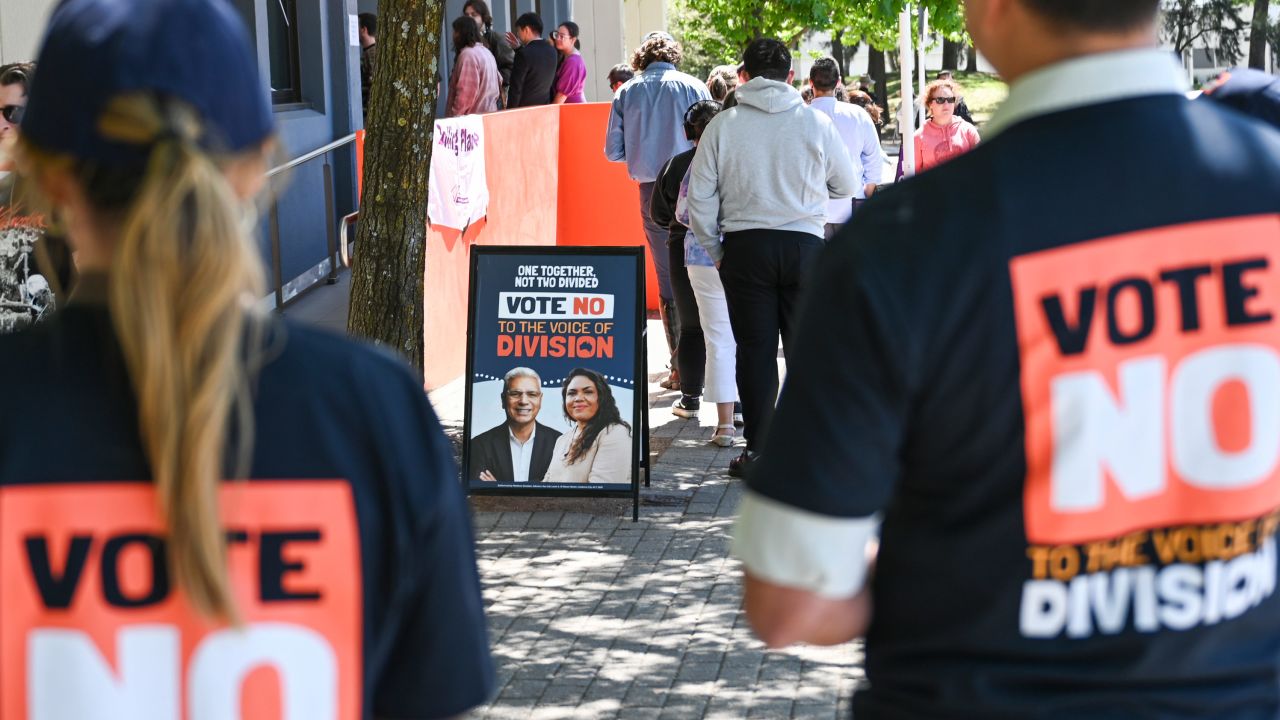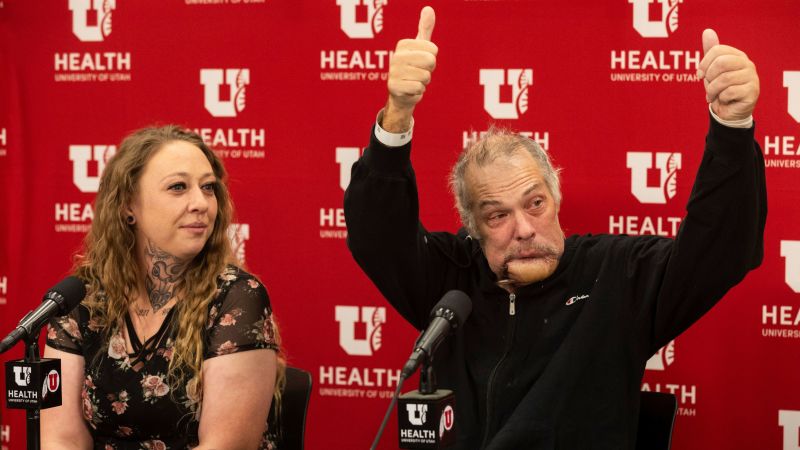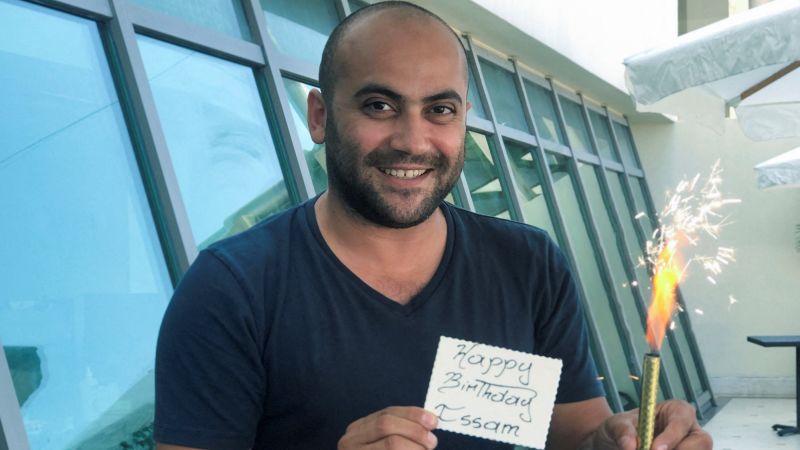CNN
—
Tens of thousands of Palestinians have been fleeing south through the battered streets of Gaza after the Israeli military told them to leave northern areas of the densely populated strip.
Parts of the south are becoming even more crowded and overstretched, Gazans say, as waves of Palestinians abandon their homes in the wake of Israel’s statement, which came ahead of an anticipated ground assault by the Israel Defence Forces (IDF).
More than half of Gaza’s 2 million residents live in the northern section that Israel said should evacuate. Many families, some of whom were already internally displaced, are now crammed into an even smaller portion of the 140-square-mile territory.
The IDF said Saturday it would allow safe movement on specified streets between the hours of 10 a.m. and 4 p.m. local time (3 – 9 a.m. ET). Residents were advised to use this window to move from the northern Beit Hanoun to Khan Yunis in the south – a roughly 20-mile distance of rubble-strewn streets.
The evacuation statement has been described by rights groups as well as some neighboring countries as a breach of international humanitarian law. Jordan’s foreign minister described it as a “war crime.”
The UN’s Relief and Works Agency for Palestine Refugees (UNRWA), which was forced to move its central operations from Gaza City to a location in southern Gaza following the Israeli statement, on Saturday described the evacuation as an “exodus,” and said that “nearly 1 million people have been displaced in one week alone.”
The evacuation advisory came after Israel imposed a complete siege on Gaza in response to a brutal attack launched a week ago by Hamas, which left at least 1,300 dead in Israel.
At least 2,215 civilians, including 724 children and 458 women, have been killed in Gaza, according to the Palestinian health ministry, as the Israeli military continues to pound the territory.
Palestinians who fled south, and those who are still north, are rapidly running out of food and water. There is no more electricity, and those with fuel-powered generators will soon live in complete blackout. Internet access, through which residents communicate their plight to the world, is also shrinking.
Mohamed Hamed, a 36-year-old resident of Gaza City, moved southward to Nuseirat, a refugee camp some five kilometers north-east of Deir al-Balah – which he was told was safe.
Hamed fled the north with 30 family members, including his extended relatives, four children and his wife, who is over eight months pregnant.
“In this situation, we’re afraid that she goes into labor, and we wouldn’t know where to go,” he told CNN.
The family has no access to medical care and are crammed into a single apartment with no electricity, and quickly depleting food and water.
“There is no electricity, there is no water. Bakeries are working but these are their final hours, as the fuel they need is running out,” he said, adding that “the food we have may last us a day or two.”
Speaking to CNN by phone, Hamed said that Nuseirat is a small area yet has received large crowds of displaced Palestinians from the north. Drinking water is only available in mineral water bottles, he said, which are dwindling as crowds rush to stock up.
“Everything in supermarkets and shops was used up,” he said.
Shelling in Nuseirat is intense, but not as bad as it was in Gaza City, where neighborhoods were “entirely wiped out,” he said.
Hamed said that the time provided by the IDF for “safe passage” southward may not be enough for vast number of Palestinians that need to flee, and that some Gazans in the north refuse to leave fearing forceful displacement into Egypt.
For many, that would mean displacement for the second time. The majority of Gaza’s residents today are already refugees from areas that fell under Israeli control in the 1948 Arab-Israeli war.
“People are afraid of this, of being pushed to Egypt,” he said, adding that the airstrikes have been “horrifying,” with some areas being targeted for the first time despite the years of conflict between Hamas and Israel.
But not everyone in Gaza’s north has heeded the IDF’s call to move southwards. Palestinian journalist Hashem Al-Saudi and his family have only moved from east to west of Gaza City, which is among areas the IDF told civilians to evacuate.
Residents are forced to leave their homes to fill up water tanks, the 33-year-old told CNN by phone, which puts them at risk of being struck by Israeli missiles.
Food is scarce, he said, and may not last his 11-member family more than three or four days.
“I say this jokingly, but those who are on a diet are eating more than us.”
Al-Saudi says that not only do they have nowhere to stay if they moved south, but that the route itself is unsafe. “Even those who moved south were hit by airstrikes,” he told CNN.
“Nowhere is safe in the Gaza Strip, from Rafah (south) to Beit Hanoun in the north,” Al-Saudi said, adding that everywhere is targeted, including “homes, shelters hospitals and places of worship.”
“Everyone on this piece of land is targeted by the Israeli military, which from the start did not differentiate between civilian and soldier.”
CNN has geolocated and authenticated five videos from the scene of a large explosion Friday along a route for civilians south of Gaza City that Israel said the following day would be safe.
The videos show many dead bodies amid a scene of extensive destruction. Some of those bodies are on a flatbed trailer that appears to have been used to carry people away from Gaza City. They include at least several children. There are also many badly burned and damaged cars.
It’s unclear what caused the widespread devastation; the explosion occurred on Salah Al-Deen street on Friday afternoon. CNN has reached out to IDF for comment on any airstrikes in the same location.
“The situation is much worse than what you see on television,” he said. Many bodies remain unidentified, and corpses are being stored in refrigerators not made for storing human remains, Al-Saudi said.
“Streets are filled with rubble and reek of blood.”
The Israeli government launched a complete blockade on essential goods entering Gaza earlier this week, prompting warnings from human rights groups who say the siege is in violation of international law.
Israel, which administers most of the electricity, water, fuel and some of the food inside the Palestinian enclave, already imposes a stringent land, sea and air blockade, but used to permit some trade and humanitarian aid through two crossings that it controls.
Refaat Alareer, 44, a literature professor in Gaza City, said Thursday – before Israel told Gazans to evacuate – the shelves in his local supermarket are emptying every day. He has been able to buy cans of tinned tuna, adding that he avoided purchasing perishable goods because the lack of electricity means refrigerated food “will rot.”
Alareer, who lives with his wife and their six children, said his neighbors insist on leaving milk powder on the shelves – so that other parents can feed their own families.
“I’ve never seen people this disciplined,” he said. “I didn’t buy a single thing that is more expensive than it was last week.
“(What is) so beautiful about, you know, being in Gaza, being in Palestine, the solidarity.”
More than half of the residents in Gaza are food insecure and live under the poverty line, according to UNRWA. Alareer warned that blue collar workers, farmers and street vendors “will suffer the most,” from the blockade.
“We’re bracing for the worst. What happened is extremely genocidal in every sense of the word,” he added.
Aseel Mousa, a 25-year-old freelance journalist in Gaza, said she is unable to communicate with loved ones in other parts of the enclave, as electricity supplies diminish.
“We cannot connect with the world,” she told CNN on Thursday. “We hear the bombings, the air strikes and we don’t know where they are exactly.
“We cannot check up on our relatives who live in different areas of the Gaza Strip, we cannot reach them as there is no internet and there is no electricity.” She said on Friday that she relocated with her family from western Gaza to the south.
On Friday, Alareer told CNN he and his family see no choice but to remain in the north – despite Israel’s evacuation advisory – because they had “nowhere else to go.”
“Israel bombs (are) everywhere,” he said.
Gaza has already been under blockade since Hamas took control of the territory in 2007.
Egypt imposes a land blockade, while Israel imposes an air, sea and land blockade. The siege was completely tightened after Hamas’ attack on Israel a week ago, and the only remaining route into or outside of the Gaza Strip is the Rafah Crossing, which connects Gaza to Egypt’s Sinai.
While some aid has arrived in Egypt, it is yet to cross the border, which earlier this week was struck by Israel on the Palestinian side, according to Palestinian and Egyptian officials.
Egypt on Thursday stressed that its Rafah Crossing was however open, a claim CNN could not independently verify.
A Palestinian border official told CNN on Saturday morning that concrete slabs were being placed at the Rafah border crossing into Egypt, blocking all gates. The slabs were being placed by a winch visible on the Egyptian side of the crossing, the official said.
The official added that hundreds of Palestinians with foreign passports have been sat in the streets for hours, waiting to cross. “The gates are closed, and no one is being let through,” he told CNN.
CNN has reached out to Egyptian officials for comment.



